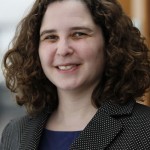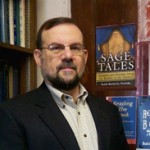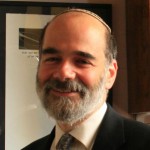Moses seemed to know he was running out of time. In these last chapters of the book of Numbers, he pours out a bucketful of laws that tumble forth upon the Jewish people.
Embedded in this great sacred gush, as the Israelites stand between wilderness and homeland, vastness and boundedness, Moses speaks fundamentally of the power and meaning of place, where, how and to whom it is distributed.
The reading recounts every place the children of Israel stopped on their 40-year journey, and the places on the east side of the Jordan given to (or taken by) the tribes of Reuben, Gad and the half-tribe of Manasseh. It names every boundary on the west side of the Jordan, and all the chieftains of all the tribes who held title, on behalf of their tribe, to their land in Israel.
It sets aside common land for the Levites and the cities of refuge (a sort of village-prison that protects the innocent from blood-avengers). It teaches the manner in which women can inherit land by right yet still keep it in their families’ tribal domain. It calls for the creation, designation and maintenance of an extensive band of commons girdling every city in the land of Israel.
This is a stunning array of disparate laws related to the possession, distribution, management and appreciation — both attitudinal and economic — of the land. There is a reason Moses’ great legacy is crowned by such laws, for it is upon the ethics and values that emerge from our relation to the land that our well-being — personal, communal and global — ultimately depends.
Land — and what we do on it, with it and to it — affects all of life. Humans have become so numerous and our footprint so large, that the water, air and all living creatures are affected by our behavior. We can alter worlds. And just as critically, our way of being with and toward the land often reflects our way of being with and toward each other.
As such, it affects not only the well-being of the physical planet, but the well-being of our social planet as well. So it behooves us to try to discern from Moses’ last laws the universal lessons that might guide our choices and our behaviors.
The Torah teaches at least three lessons about living on this planet — three lessons that we must remember lest we devastate the “promised land” (wherever we may find ourselves geographically) and the hope and future of our children.
1) The Earth is a gift. No lone human, no lone civilization — not even all of us together — can claim to have created, built or even imagined the Earth. We were gifted it and all that is upon and within it. It came from forces far beyond ourselves and from those who used it and preserved it before us. The Earth, then, is both ours and not ours. It is at most a borrowing, an accidental (created by random acts of nature) and intentional (by what our ancestors left us) gift. It is a temporary gift we must leave for the next generation, no worse, and ideally better, than the one we received. It is a gift, like all gifts, that we enjoy but did not earn.
2) The Earth is finite and rare. Who knows where else life might exist in this vast universe? We are the very few, if not the only ones, of the universe’s consciousness — the only ones aware of its awesomeness and existence — and yet we live inside its fragile boundaries. While the Earth can reclaim and reuse its water, matter, air and soil, it cannot make them from scratch. We must wrap our large appetites and curiosity around the contours and life-giving systems of this world. Though our visions can be cast as far as light, our consumption must be tamed by the bounds of the Earth’s cupboard.
3) The Earth must be shared. The Earth and all its blessings belong to all of us. It belongs to the poor as well as the rich, those alive today as well as those yet to be. Environmental justice means the equitable distribution of the Earth’s goodness, for us and for those to come. Reclaiming the sense of the commons — the natural, economic, material and social resources that we all share — is essential, be it an urban household or the Earth that 9 billion of us will soon inhabit. Through sustainable practices that teach that waste is a design flaw, a failure of technology and imagination, and that not everything that we enjoy and use needs to be owned by us, today’s generation is redrawing the golden circle of private ownership in a wider, more resilient sphere of sharing.
And it is not a moment too soon. We, like Moses, are running out of time. We are the generation that is living through the last days of the most awesome period in world history. We occupy the “sweet spot” in which knowledge, technology, ambition and the stored resources of millions of years of creation have joined to fashion a culture of abundance that is in the last of its glory days.
For millions of years the Earth has prepared itself for us. And we, hungry souls that we are, have obliged, dipping our straws ever deeper into the organic soup that Earth has made from raw sunlight — a soup that cannot be made again for millions of years. We are taking good, long, satisfying draughts that charge us up now, but that are emptying the source for those to come, with no ready way to refill it.
We are at a historic, even geological, turning point in time. We are moving from the last great geologic era, the Cenozoic, to what some are calling the “Anthropozoic,” the age determined by the acts of humankind. History, we know now, is determined not only by what humans do to humans, but also by what humans do to — and with — the Earth. With such power, we must think deeply about the short- and long-term impact of our actions.
If we remember that the Earth is a gift that is ours for just a moment; that though its systems are cyclical, its matter is finite; that we must find ways to share and renew its resources; that waste is a flaw; that most of the harm we do to the Earth will be either entirely irreparable (extinctions cannot be undone) or reparable beyond any meaningful human timespan — if we remember that we are all in this together and that the key rests in our will and spirit — then perhaps we can turn this increasingly consumptive culture around and set it on a more vibrant, resilient and celebrated course.
Rabbi Nina Beth Cardin serves as the Chair of the Chesapeake Covenant Community, an interfaith environmental group active in the Chesapeake Bay watershed, directs the work of the Baltimore Orchard Project, an organization dedicated to growing the urban orchard and providing free healthy local fruit to those in food deserts, and is founder and director of the Baltimore Jewish Environmental Network.
ON Scripture — The Torah is a weekly Jewish scriptural commentary, produced in collaboration with Odyssey Networks and Hebrew College. Thought leaders from the United States and beyond offer their insights into the weekly Torah portion and contemporary social, political, and spiritual life.
















